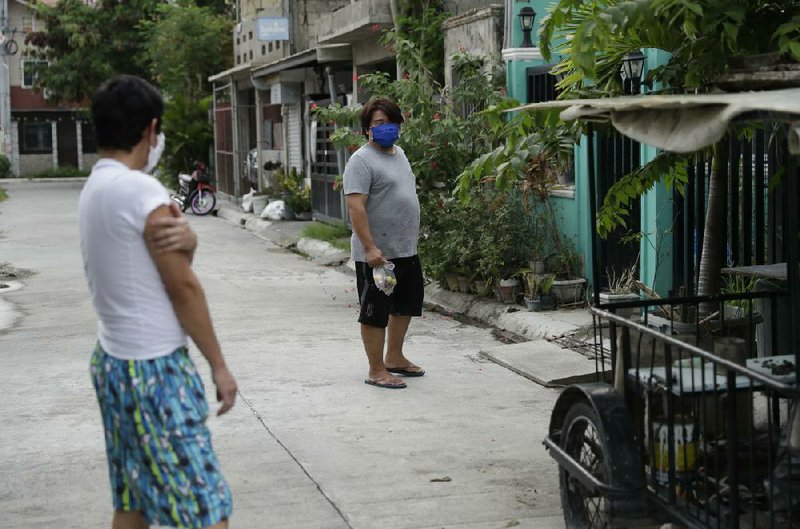MANILA, Philippines -- Tens of thousands of workers have returned by plane and ships as the pandemic, lockdowns and economic downturns decimated jobs worldwide in a major blow to the Philippines, a leading source of global labor.
The sudden influx, combined with the government's limited quarantine and virus-testing capability and bureaucratic snags, set off chaotic delays and congestion in Manila hospitals, hotels and makeshift isolation structures. With public transport and flights restricted in the capital, the populous epicenter of the viral outbreak, the hordes of workers were effectively trapped from moving on to their provincial destinations.
When his cruise ship sailed into Manila Bay after weeks of voyaging like a castaway as ports were closed by the global pandemic, Erick Arenas felt he was finally home.
But the 34-year-old dance performer of the Ovation of the Seas saw an ominous sign even before he could set foot on his homeland. An array of the world's best-known cruise ships was waiting at anchor off the Philippine capital to drop off thousands of Filipino crew members like him who were displaced across the world by the contagion.
[CORONAVIRUS: Click here for our complete coverage » arkansasonline.com/coronavirus]
"I thought I was on my final mile to home," said Arenas, whose homecoming was made tragic by the death of his father from pneumonia a few weeks before his ship reached Manila.
Nearly a month after disembarking, however, Arenas was still stuck in complete isolation in a hotel used for quarantine in metropolitan Manila, about an hour's drive from his home in Cavite province.
"It's not only covid-19 that we're fighting against. It's our mental health, it's our, you know, frustration," Arenas told The Associated Press in an online video interview from his hotel room overlooking a business district devoid of the usual crowds under a lockdown.
Faced with complaints, President Rodrigo Duterte ordered government agencies to help more than 24,000 workers, to get home. He gave a one-week deadline ending today, sparking a flurry of movements.
"I hope this will not happen again," Duterte said in a televised meeting with key Cabinet officials Thursday, lamenting the difficulties encountered by the workers.
At least 300,000 more displaced Filipinos were expected to journey home, "but this time, we should know what to do," the blunt-speaking leader said.
Hans Cacdac, who heads the Overseas Workers Welfare Administration, told a congressional hearing Friday that public transport restrictions under the Manila lockdown prevented the workers from being moved out of the capital en masse, but said most were taken back to their provinces last week after the president intervened. Only 4,000 remain stranded in the capital, including about 1,500 on board cruise ships in Manila Bay, he said.
Information for this article was contributed by Kiko Rosario, Aaron Favila and Joeal Calupitan of The Associated Press.
A Section on 05/31/2020
